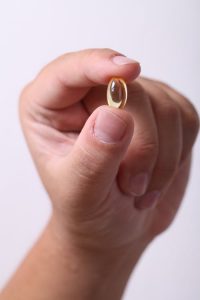By Heide Kennedy, Arizona Farm Bureau Communications Intern
Does it ever feel like there are so many vitamins and minerals that are important to our health that it is hard to keep track of them all? To make things more complicated, how do you know which ones you can get from food, which ones you should be supplementing, and which ones you even need in the first place? 
Registered dietician Kate Patton notes that vitamins and minerals are very important for our health, as they aid our bodies in breaking down the fats, carbohydrates, and proteins that we consume, as well as helping our bodies to function overall. The following 9 vitamins and minerals are ones that are recommended that we incorporate into our diets or supplementation.
- Vitamin A
- Vitamin B Complex
- Vitamin C
- Vitamin D
- Vitamin E
- Vitamin K
- Calcium
- Iron
- Zinc
Patton notes that each one of these is available in foods that we can consume and that this is the best way to be getting your daily vitamin and mineral needs. So, if your diet is already high in some of these vitamins, supplementation of those vitamins isn’t entirely necessary. However, if you know that you are lacking in any of them, supplementation is a great option, and she suggests consulting your doctor or dietician for personalized advice.
For more health-related articles, check out the Fill Your Plate blog!

